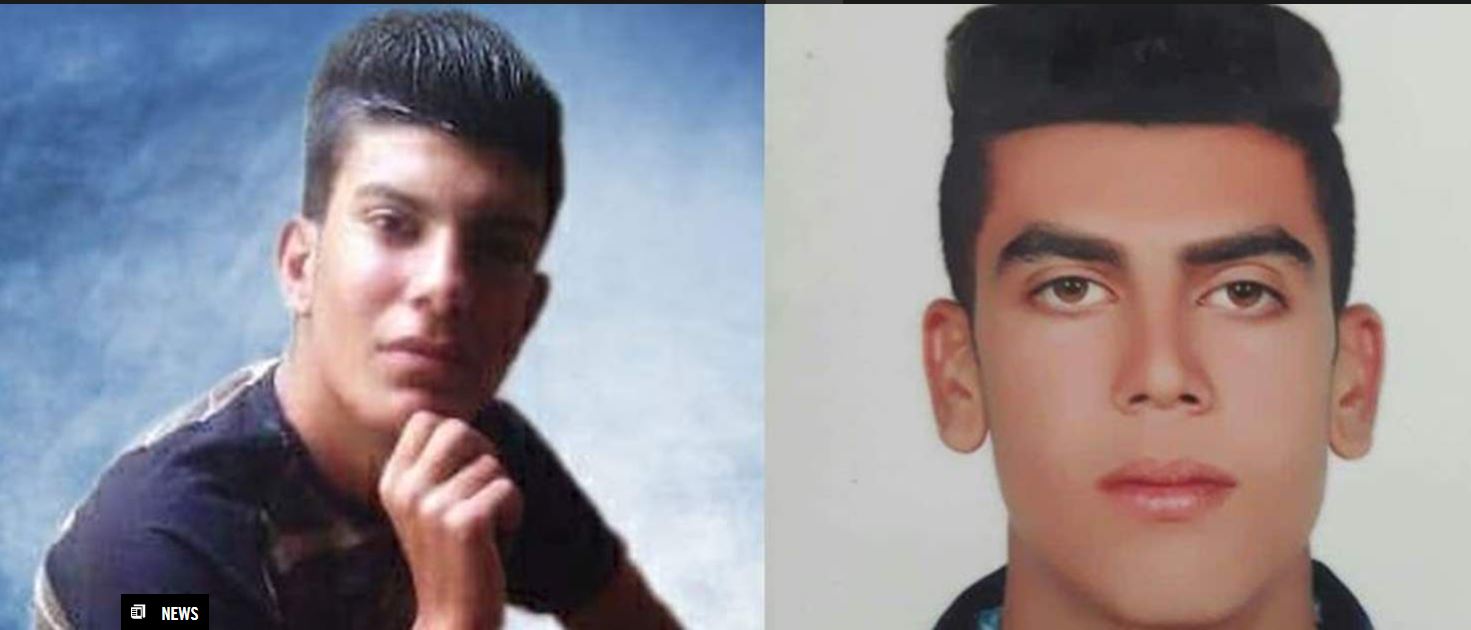
The Iranian authorities have flogged and secretly executed two boys under the age of 18, Amnesty International has learned, displaying an utter disdain for international law and the rights of children.
Mehdi Sohrabifar and Amin Sedaghat, two cousins, were executed on 25 April in Adelabad prison in Shiraz, Fars province, southern Iran. Both were arrested aged 15 and convicted on multiple rape charges following an unfair trial.
According to information received by Amnesty International, the teenagers were unaware that they had been sentenced to death until shortly before their executions and bore lash marks on their bodies, indicating that they had been flogged before their deaths. Their families and lawyers were not informed about the executions in advance and were shocked to learn of the news.
“The Iranian authorities have once again proved that they are sickeningly prepared to put children to death, in flagrant disregard of international law. It seems they cruelly kept these two boys in the dark about their death sentences for two years, flogged them in the final moments of their lives and then carried out their executions in secret,” said Philip Luther, Middle East and North Africa Director at Amnesty International.
“The use of the death penalty against people who were under 18 at the time of the crime is strictly prohibited under international human rights law and is a flagrant assault on children’s rights. It is long overdue for Iranian parliamentarians to put an end to this harrowing situation by amending the penal code to ban the use of the death penalty against anyone who was under 18 at the time of the offence.”
Iran remains the top executioner of children in the world. As a state party to the Convention on the Rights of the Child and the International Covenant on Civil and Political Rights, Iran is legally obliged to treat anyone under the age of 18 as a child and ensure that they are never subjected to the death penalty or life imprisonment.
Mehdi Sohrabifar and Amin Sedaghat had been held in a juvenile correction centre in Shiraz since 2017. On 24 April, they were transferred to Adelabad prison, apparently without knowing the reason. The same day, their families were granted a visit with them, but they were not told that it was in preparation for their execution.
The next day, on 25 April, the families suddenly received a call from Iran’s Legal Medicine Organization, a state forensic institute, informing them of the executions and asking them to collect the bodies.
The legal proceedings leading to the two boys’ conviction and sentence were unfair and flagrantly violated the principles of juvenile justice. Following their arrest, they were held for two months in a police detention centre, where they said they were beaten. They also had no access to a lawyer during the investigation stage.
The practice of subjecting children to police questioning in the absence of a guardian or lawyer violates the Convention on the Rights of the Child, which provides that children in conflict with the law must be guaranteed prompt legal assistance.
Amnesty International has recorded the execution of 97 individuals in Iran who were under the age of 18 at the time of the crime between 1990 and 2018. More than 90 others remain at risk of execution.
The fact that Mehdi Sohrabifar and Amin Sedaghat’s executions were not made public before their cases were made to known to Amnesty International reinforces the organization’s concern that the real number of executions of juvenile offenders in the country is actually higher than the figure it has recorded. Juvenile offenders currently on death row are also at risk of being executed in secret if their cases are not brought to the attention of human rights organizations for public campaigning and advocacy.
“We have identified a trend in which Iran’s authorities are carrying out executions of juvenile offenders in secret and without giving advance notice to the families, seemingly in a deliberate attempt to avoid global outrage. This makes it all the more important for influential international actors such as the EU to increase their diplomatic and public interventions to pressure Iran to end the use of the death penalty against juvenile offenders,” said Philip Luther.
Many have spent prolonged periods on death row – in some cases more than a decade. Some have had their executions scheduled and postponed repeatedly, adding to their torment. Such conditions of uncertainty causing severe anguish and mental distress amount to cruel, inhuman and degrading treatment.
The use of the death penalty for rape is not permitted under international law, which states that its use must be restricted to the most serious crimes involving intentional killings.
Amnesty International opposes the death penalty in all cases without exception regardless of the nature of the crime, the characteristics of the offender, or the method used by the state to kill the prisoner. The death penalty is a violation of the right to life and the ultimate cruel, inhuman and degrading punishment.












 Posted in
Posted in 











